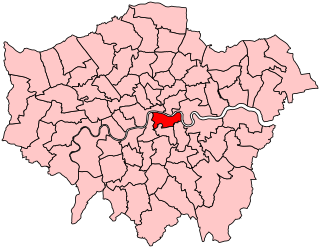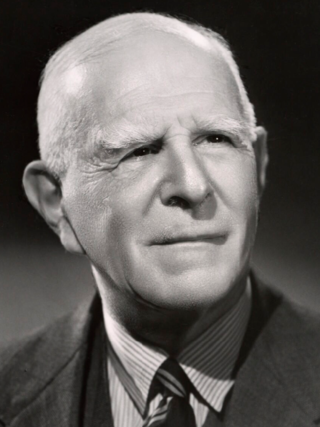Related Research Articles

Sir Simon Henry Ward Hughes is a British former politician. He is now the Chancellor of London South Bank University, an external adviser to The Open University, and a strategic adviser to Talgo, a Spanish manufacturer of trains. Hughes was deputy leader of the Liberal Democrats from 2010 to 2014, and from 2013 until 2015 was Minister of State at the Ministry of Justice. He was the Member of Parliament (MP) for the constituency of Bermondsey and Old Southwark from 1983 until 2015. He declined a position in the House of Lords in 2015.

North Southwark and Bermondsey was a parliamentary constituency which returned one Member of Parliament (MP) to the House of Commons of the Parliament of the United Kingdom. The constituency was created for the 1997 general election.
The Liberal–Labour movement refers to the practice of local Liberal associations accepting and supporting candidates who were financially maintained by trade unions. These candidates stood for the British Parliament with the aim of representing the working classes, while remaining supportive of the Liberal Party in general.
Dulwich was a borough constituency in the Dulwich area of South London, which returned one Member of Parliament (MP) to the House of Commons of the Parliament of the United Kingdom.

Richard Knight Causton, 1st Baron Southwark PC, DL was an English stationer and Liberal politician who sat in the House of Commons in two periods between 1880 and 1910. In the same year he was raised to the peerage and sat in the House of Lords.
Southwark and Bermondsey was an inner city constituency in London, United Kingdom. Its sole Member of Parliament was Simon Hughes, in the first stage of his career in the house, as a Liberal then Liberal Democrat after the party's founding in 1988. It was replaced with the North Southwark and Bermondsey seat in 1997.

Southwark was a constituency centred on the Southwark district of South London. It returned two Members of Parliament to the House of Commons of the English Parliament from 1295 to 1707, to the Parliament of Great Britain from 1707 to 1800, and to the UK Parliament until its first abolition for the 1885 general election. A seat of the same name, covering a smaller area than the last form of the earlier seat in the west of the original and beyond its boundaries to the southwest, was created in 1950 and abolished in 1974.

Caroline Valerie Pidgeon is a British politician serving as the Leader of the Liberal Democrats in the London Assembly since 2018, and a Londonwide Member of the London Assembly (AM) since 2008.

Thomas Owen Jacobsen was a British businessman and Liberal politician. He was born in Richmond Terrace, Liverpool, on 23 April 1864, and was the son of a naturalised Dane. He was a master printer and the senior partner in the stationery company of Jacobsen, Welch and Company, whose paper mills were at Hyde, Cheshire.

James Arthur Dawes was an English solicitor, businessman and Liberal Member of Parliament (MP) from 1910 to 1921.

An election to the County Council of London took place on 2 March 1922. It was the eleventh triennial election of the whole council. There were sixty dual member constituencies and one four member constituency, making a total of 124 seats. The council was elected by First Past the Post with each elector having two votes in the dual member seats.

Marston Clarke Buszard Q.C. was an English barrister and a Liberal politician who sat in the House of Commons from 1880 to 1885.

Elections for Southwark Council were held on 6 May 2010. The 2010 General Election and other local elections took place on the same day.
The 1964 Southwark Council election took place on 7 May 1964 to elect members of Southwark London Borough Council in London, England. The whole council was up for election and the Labour party gained control of the council.

The 1927 Southwark North by-election was a parliamentary by-election for the House of Commons constituency of Southwark North held on Wednesday, 28 March 1927.
The 1870 Southwark by-election was fought on 17 February 1870. The by-election was fought due to the resignation of the incumbent MP of the Liberal Party, Austen Henry Layard. It was won by the Conservative candidate Marcus Beresford.
The 1900 Plymouth by-election was held on 16 February 1900. The by-election came after the resignation of the incumbent Conservative MP, Sir Edward Clarke. It was won unopposed by the Conservative candidate Hon. Ivor Churchill Guest.

The 2021 London Assembly election was held on 6 May 2021 to elect the members of the London Assembly, alongside the 2021 London mayoral election. The mayoral and Assembly elections were originally to be held on 7 May 2020, but on 13 March 2020 it was announced the election would be postponed until 2021 due to the COVID-19 pandemic. It was the sixth election since the assembly was established in 2000. Due to the previous term being extended to 5 years, those elected will serve only a three-year term until the next election in 2024. The election was held on the same day in 2021 as other elections in the UK; the UK local elections, Scottish Parliament election, and Welsh Senedd election.

An election to the County Council of London took place on 5 March 1931. The council was elected by First Past the Post with each elector having two votes in the two-member seats. The Municipal Reform Party slightly increased its majority on the council, with overall results matching those from 1925.

An election to the County Council of London took place on 8 March 1928. The council was elected by First Past the Post with each elector having two votes in the two-member seats. The Labour Party made slight gains at the expense of the Municipal Reform Party, which nonetheless retained a substantial majority.
References
- ↑ Leigh Rayment's Historical List of MPs
- ↑ Thomas Otte et al, By-Elections in British Politics, 1832–1914, p. 120.
- ↑ "Southwark Election". The Cornishman. No. 84. 19 February 1880. p. 6.